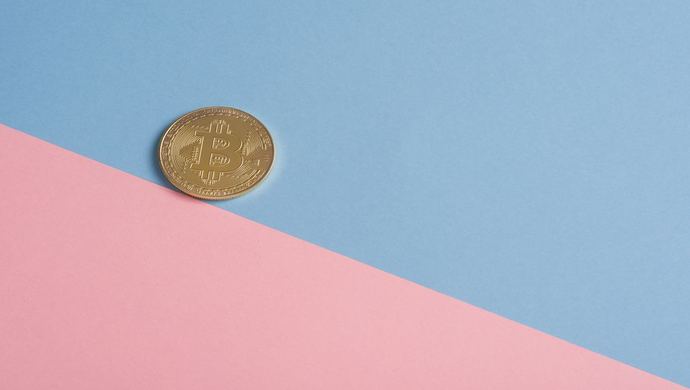These tokenised assets show, that blockchains are not just here to disrupt financial institutions

Ever since the year of Bitcoin in 2017, people of every stripe, from curious observers to Wall Street investors, have started paying attention to the technology known as the blockchain. While some still confuse the two Bitcoin is merely a product of the blockchain. Those who have done their homework have begun to realise the immense potential this technology holds.
With a little digging and you will be surprised with the assets now being tokenised into the blockchain.
Also Read: Here is why blockchain will have a big impact on the healthcare industry
Today, digital currencies aren’t the only assets traded through the online ledger. In Singapore, there are now blockchain-powered marketplaces that buy and sell renewable energy certificates, for local and international clients.
Hong Kong, the city with the most expensive homes, now has property developers seeking regulatory approval for tokenised real estate.
Startups have taken advantage of the immutable and decentralised technology to develop products that not only secure assets but more importantly, data.
As privacy issues continue to hound some of the Internet’s most prominent platforms, blockchain’s sophisticated peer-to-peer verification system becomes even more attractive.
Blockchain IDs in India
The technology is so promising that even governments are realising the technology’s potential as they tap blockchain-enabled solutions to streamline cumbersome processes.
In India, two municipalities have started issuing birth certificates through a blockchain-enabled system, cutting down the application process for citizens.
If parents had to register in government offices and wait for more than a month to secure a copy of a newborn’s birth certificate before, the new system will cut the waiting time and let them keep a certificate for life, as it’s stored in an app.
The government partnered with Netherland-based blockchain app developer Lynked.world, which runs a mobile app that locals use to access the personal information stored in their government documents like passport and driver’s licenses.
The same company has also developed a blockchain-enabled marketplace for India’s farmers, where they can sell their products and goods directly to consumers, eradicating intermediaries. The government is hoping these initiatives will cut down red tape and lessen instances of corruption.
Also Read:Trust : an essential component in the success of investment oriented blockchain projects
Tokenised homes
The decentralised ledger has also given way to open, accessible markets, that were otherwise exclusive to corporate investors.
Real estate, for example, is one of the industries set to be disrupted by blockchain through tokenisation.
In theory, this means property developers may create digital counterparts of their projects with which small-time investors can buy shares.
According to the data provided by the price comparison site, GlobalPropertyGuide, the average price of one square meter of home property in premier cities in the Asia Pacific is now at US$9,895.
With tokenised real estate, those who may be willing to invest in properties but may not have that much cash can still participate in the market.
This way, even those with small capital to invest can enjoy the growth of the property.
Blockchain-enabled phones
Blockchain’s decentralised technology has also made way for a truly secure data collection.
In Singapore, a startup called Pundi X is set to launch XPhone, a smartphone powered by blockchain, later this year.
The developers say the device can run even without any service provider, allowing the user to text and call through its blockchain-powered ecosystem called Function X.
The system is envisioned to be used and run by developers who wish to launch blockchain-enabled smartphones in the future, like the Android.
Since all processes and functions that will run on Function X will be encrypted, users have ensured their data is theirs alone.
Also Read:5 Asia-based startups that are making blockchain part of everyday life
This now sounds like a luxury with some of the data issues the world’s biggest smartphone makers. Some, like Huawei, has been even labeled as a “security threat”, as the manufacturer is feared to be sharing user data to the Chinese government.
But with blockchain phones, privacy is one less thing to worry about as the entire technology is running on a “trustless” system, as no one entity owns the whole program.
These products may still be in its early stages, but experts already expect funding to drive this technology forward continuously.
“Indeed, as we see the emergence of the concept of Digital Trust, blockchain is a key ingredient in delivering this trust, at scale, across many markets, allowing a new pace of business interaction that had previously been restricted by process and approval challenges,” said Simon Piff, VP for Security and Blockchain Research.
Aside from artificial intelligence, it’s probably one of the technologies set to disrupt traditional businesses and practices completely, and will hopefully make more industries otherwise exclusive to select few, a more inclusive one.
It’s already proven its power to change the rules in traditional banking with more blockchain-enabled fin-tech startups launching on an annual basis.
But with these tokenised assets, it shows, that the technology isn’t just here to disrupt financial institutions.
It’s set to change how we do things, from the way we communicate to the way we deal with public and private entities.
With these developments, it wouldn’t be surprising to find blockchain-enabled services changing the way people live in the coming years.
–
Editor’s note: e27 publishes relevant guest contributions from the community. Share your honest opinions and expert knowledge by submitting your content here.
Join our e27 Telegram group here, or our e27 contributor Facebook page here.
Image Credit: Icons8
The post 3 of your most important assets may soon have tokenised counterparts in the Blockchain appeared first on e27.